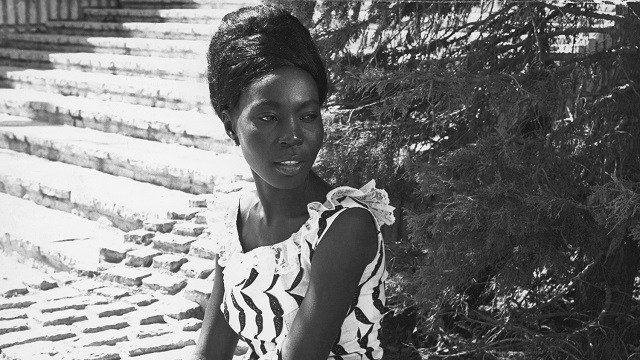The title Chuck Norris Vs Communism is a lie. Chuck Norris’s films barely make an appearance in this documentary about how entertainment can become propaganda in the face of propaganda without entertainment. Director Illinca Calugareanu and her team set out to discover the roots of illegal VHS smuggling in Romania, and the social effects it caused.
In 1965, Nicolai Ceausescu became the communist dictator of Romania, and proceeded to lock down all forms of entertainment. Under the rule of Ceausescu, Romanian television dropped down to one channel airing for two hours a day, and only propaganda. Permitted radio was also Romanian propaganda. But, then came the VCR. VCRs and VHS tapes weren’t permitted in Romania, but became an underground phenomenon all forming under the replication king Teodor Zamfir and translation artist Irina Nistor.
Calugareanu’s documentary is less about specific movies than about the effects of American culture on a communist culture. Similar to Estonia in Jaak Kilmi’s Disco and Atomic War, Romania gained knowledge of other cultures through illicit entertainment. Calugareanu never gets too political, instead keeping this a sociological exploration of oppression and courage. The ages of her interview subjects remind us that dictatorship wasn’t all too long ago, with the ghost of the current Russian government playing in my memory. Did you know that Russia has banned foul language in entertainment, on stage, and in public…but allowed on a case by case basis? I learned that a few days before watching this movie, and that knowledge totally hung over the censorship at the center of the film.
If American cinema burned through Romanian politics, then Ousmane Sembene’s Black Girl had to have been a molotov cocktail of a film when it was released in 1966. Black Girl tells the story of a black girl who was brought to France to be a paid maid. She is promised the world, and shown the Cote d’Azur. Increasingly, her white French bosses keep her under their thumb, demanding more and more, and becoming increasingly abusive. Soon, she’s a 24/7 servant paid little with no free time – basically a slave to her French overlords. Her identity as a black woman comes under question as she remembers her life as a free woman in Dakur.
Black Girl is my new favorite film in the style of French New Wave. Filmed pointedly in black and white, shifting between time periods, and using extensive usage of voice over to point out the internal realizations of the central woman, as she struggles with her independence. Sembene’s film provided insight into African society under French Colonialist rule. Using a crude African tribal mask as a symbol for a nation, Sembene wanted to show just how brutal France was by stripping whole countries of their identity.
From a further standpoint, Black Girl came out 11 years into the Vietnam War, a war fought over France’s colonialist nature. That war adds another layer of identification to the film, where Black Girl indicts France’s behavior and, by proxy, shames any of France’s enablers (read: America). To bury the movie under a bunch of political allegory is the point, and should be encouraged. But, to read all of that into the movie ignores just how good Black Girl is. It’s a breezy 66 minutes of identification, race, and gender. It’s a powerful, brutal movie that breaks down our understanding of the world in the way that French New Wave movies tend to, without being insufferable about it.
Susanne Bier’s A Second Chance breaks down the walls between rich and poor in Denmark. Police Detective Andreas and Anna are new parents to a wonderful, screaming baby boy. Andreas is called out on a domestic call featuring an old mean heroin-using woman beater, Tristan, and his new girlfriend, Sanne. On the call, Andreas discovers their new born baby boy locked in a cabinet, covered in feces and urine. But, the boy isn’t malnourished or injured, just dirty. When Andreas and Anna’s son dies, Anna has a nervous breakdown, and Andreas makes the fast decision to swap babies because he knows that he and Anna would be better parents.
Bier’s fierce filmmaking takes no prisoners, and leaves no character unjudged (until an absolutely terrible and unnecessary epilogue). Her story is a bunch of characters judging other characters and being judged for judging other characters. While occasionally preachy, A Second Chance rises above the Lifetime-channel worthy subject matter by maintaining a sense of tension for how the whole movie will come out, and who is most right in their judgment. The twists come with such natural logical ease, before long, you wonder just how you came to the position you’re in. Question your logic.


